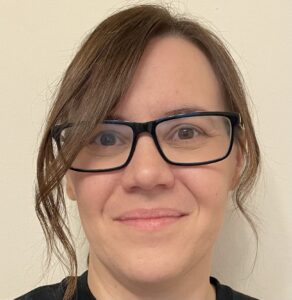The next blog in our series focussing on how research evidence can be implemented into practice, Julie Bayley, Director of the Lincoln Impact Literacy Institute writes about the power of nurses in research and how nurses can support the whole research journey.
Research is a funny old beast isn’t it? It starts life as a glint in a researcher’s eye, then like a child needs nurturing, shuttling back and forth to events and usually requires constant checking to make sure it’s not doing something stupid.
As someone who spends the majority of their working life on impact – the provable benefits of research outside of the world of academia – it is extraordinarily clear to me how research can make the world better. And as a patient advocate – having chronically and not exactly willingly collected DVTs over the last decade – it’s even more clear how good research and good care together make a difference that matters.
Having had some AMAZING care, nursing strikes me as both an art and a science. A brilliant technical understanding of healthcare processes combined magically with kindness, compassion and care. Having been hugged by nurses as I cried being separated from my newborn (post DVT), and watching nurses let dad happily talk them through his army photo album as they check on his dementia, I am in no doubt that such compassion is what marks the difference between not just being a patient, but being a person.
One of the oddities about research is how we can so often get the impression that only big and shiny counts. ‘Superpower’ studies such as Randomised Controlled Trials, and multi-national patient cohort studies are amazing, but can mask the breadth of the millions of questions research can explore in endless different ways. Of course we need trials to determine ‘what works’, but we also need research to unveil the stories of those who feel their rarely heard, understand how things work, and connect research to people’s lives.
Research essentially is just the act of questioning in a structured, ethical and transparent way. It might seek to understand things through numbers (quantitative) or words and experiences (qualitative), and may reveal something new or confirm something we already believe. Research is the bedrock of evidence based care, allowing us – either through new (‘primary’) or existing (‘secondary’) data – to explore, understand, confirm or disprove ways patients can be helped. Some of you reading this will be very research active, some of you might think it’s not for you, some may not know where to start, and others may hate the idea altogether. Let’s face it, healthcare is an extremely pressured environment, so why would you add research into an already busy day job? The simple truth is that research gives us a way to add to this care magic, helping to ensure care pathways are the best, safest and most appropriate in every situation.
The pace and scale of research stories can make it easy to presume research is something ‘other people’ do, and whilst there are many brilliant professionals and professions within healthcare, nurses have a unique and phenomenally important place in research in at least three key ways:
- Understanding what matters to patients. A person is far more than their illness, and being so integral to day to day care, nurses have a lens not only on patients’ conditions, but how these interweave with concerns about their life, their livelihood, their loved ones and all else. And it is in this mix that the fuller impact of research can be really understood, way beyond clinical outcome measures, and into what it what matters.
- Understanding how to mobilise and implement new knowledge. Even if new research shows promise, the act of implementing it in a pressured healthcare system can be immensely challenging. Nurses are paramount for understanding – amongst many other things – how patients will engage (or not), what can be integrated into care pathways (or can’t), what unintended consequences could be foreseen and what (if any) added pressures new processes will bring for staff. This depth of insight borne from both experience and expertise is vital to mobilising, translating and otherwise ‘converting’ research promise into reality.
- Driving research. Nurses of course also drive research of all shapes and sizes. Numerous journals, such as BMC Nursing and the Journal of Research in Nursing bear testament to the wealth of research insights driven by nurses, and shared widely to inform practice.
Research isn’t owned by any single profession, or defined by any size. Whatever methods, scale or theories we use, research is the act of understanding, and if nurses aren’t at the heart of understanding the patient experience and the healthcare system, I don’t know who is. So when it comes to research:
- Recognise the value you already bring. You are front and centre in care which gives you a perspective on patient and system need that few others have. Ask yourself, what matters?
- Recognise the sheer breadth of research possibilities, and the million questions it hasn’t yet been used to answer. Ask yourself, what needs to be understood?
- Use – or develop – your skills to do research. Connect with researchers, read up, or just get involved. Ask yourself, how can I make my research mark?
Research is important because people are important. If you’re nearer the research-avoidant than the research-lead end of the spectrum, I’d absolutely urge you to get more involved. Whether you shine a light on problems research could address, critically inform the implementation of research, or do the research yourself….
….from this patient and research impact geek…
Thank you.
